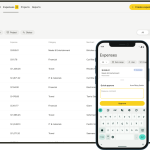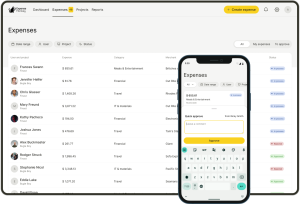In addition to traditional bank loans, cryptocurrency loans have been made available for small businesses. This type of financing allows investors to lend crypto assets to a variety of borrowers. These loans are a great way to make interest payments, and they are often referred to as crypto dividends. Many crypto loan platforms now support stablecoins for collateral. However, a cryptocurrency loan does not require the use of a traditional bank account, and you don’t have to sell your crypto.
Crypto loans are a great way to purchase more crypto than you can afford, but you should be aware that they come with a significant amount of risk. Because cryptos fluctuate in value so often and have wild fluctuations, they can lead to margin calls, which require additional crypto to cover the loan. This is why it’s important to be vigilant about your loan’s collateralization ratio. If you lose your investment, you could even default on it and be out more money than you borrowed.
A zero-collateral loan is similar to a revolving line of credit, but the borrower only pays interest on the unused portion of the loan. Moreover, zero-collateral loans have flexible repayment terms, so you can borrow as much or as little as you need. And because you don’t need to put up collateral to secure the loan, you can pay off the entire balance at any time without incurring additional fees.
Crypto lending platforms typically have lower interest rates than traditional banks and financial institutions. Some platforms offer rates as low as 1%. Another benefit of crypto loans is that you don’t have to worry about credit scores or employment status. In addition, many crypto lending platforms only require crypto assets as collateral. If you can’t afford to lose all of your crypto, a credit card may be a better option. However, it’s important to be aware that some credit card issuers do not allow crypto loans.
A decentralized finance lending platform like Atlendis has created a capital-efficient environment for crypto loans. The protocol makes it possible for crypto loans to become more widely available to institutions. The decentralized platform also offers the convenience of recurring liquidity that borrowers can withdraw when they need to. Borrowers are also offered protection against loan defaults, unlike traditional bank loans. While these decentralized platforms offer fast access to funds, centralized lending platforms often require more personal information and customer service interactions.
As with traditional bank loans, there are some risks involved. Crypto loans can only be repaid if they are paid off on time. Since the crypto value is volatile, it is possible for the value of the collateral to go down over time. However, some crypto lending platforms allow the borrower to repay the loan before the due date. Interest rates for crypto loans are not based on the crypto value, but are set in U.S. dollars.












More Stories
Beyond Greenwashing: How Sustainable and ESG-Linked Loans Work for You and Your Business
Financial Wellness Programs and Their Impact on Employee Loan Access
Financing Alternative Education Paths: Your Guide to Paying for Bootcamps, Certifications, and More